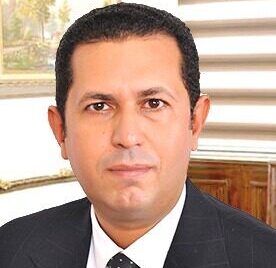Water security is a global right

Water is a vital issue in Egypt, one that is closely tied to the lives of over 115 million people living in this country.
The Nile River, the source of over 98% of the country’s fresh water, is a lifeline for Egyptians.
It has become essential for Egypt to place the water issue at the top of its priorities, in the light of growing global challenges. This reflects a deep understanding of the significance of water as a national issue.
Addressing the 7th edition of the Cairo Water Week a few days ago, President Abdel Fattah El Sisi reiterated Egypt’s strong commitment to its African identity.
Egypt was also keen to highlight the efforts it made in the past period to promote regional co-operation and support member states of the African Ministers’ Council on Water in achieving their sustainable development goals, in its capacity as the current head of the council. These efforts are crucial for ensuring the sustainable use of water resources in Africa, a continent that faces immense challenges induced by climate change and unequal water distribution. There is an urgent need for enhancing international co-operation in the management of water resources.
The drilling of water wells and the rehabilitation of river ports by Egypt in Nile Basin states reflect the North African country’s strong will to support its fellow basin states and work towards the achievement of water security for everybody.
This co-operation is not just a moral duty, but an investment in a better future for all the region’s peoples.
However, regional co-operation alone is not enough. The international community must also increase its support for African nations’ efforts in the water sector. This requires the provision of the necessary funding and technology to implement projects aimed at achieving water security and sustainable development.
Water is not merely a resource. It is a fundamental human right whose importance should be central to the global agenda.
Agreements adhering to the fundamental principles of international water law must be established to promote cross-border co-operation and ensure the sustainable and equitable management of shared water resources.
These core principles include fair and equitable use, the obligation not to cause harm, prior notification, and consultation among riparian states. A shared vision and sustainable management are essential to guarantee the rights of all basin countries.
A recent report by the United Nations has lamented the lack of sufficient co-operation among states sharing trans-boundary water resources.
Only 59% of these states cooperate, the report says, which shows the pressing need for greater political commitment and action.
Historical evidence shows that reaching agreements on shared water resources often requires lengthy and comprehensive negotiations, as seen with the Senegal River Basin Development Organisation and the International Commission for the Protection of the Rhine. Strengthening trans-boundary co-operation is a cornerstone of Egypt’s water policy.
Egypt played a role in founding the Nile Basin Initiative (NBI) in 1999, but walked out of the initiative’s technical activities in 2010, due to violations of decision-making rules which rely on consensus. It is crucial to return to the co-operative principles, on which the initiative was founded, and to firmly reject non-co-operative and unilateral actions, such as the construction of Ethiopia’s Blue Nile dam.
This is especially true in the case of non-adherence to international law and ignoring key co-operation principles, particularly the principles of consultation and conducting social, economic, and environmental impact assessments which could lead to significant harm.
We must recognise that water management is an existential issue that requires strong political commitment, effective diplomatic efforts, and continuous collaboration between sister nations.
The Nile River is a symbol of life in Egypt. This is why we must all work together to protect it and secure its future.
Water is not only a source of life, but the basis of progress and development. We have to safeguard this precious resource to ensure its sustainability for future generations.
Mohamed Fahmy is the editor-in-chief of The Egyptian Gazette and Egyptian Mail newspapers [email protected]

